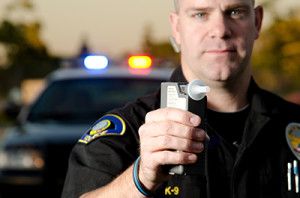 Those who are under suspicion of DUI in Boulder are not required to answer any questions asked by the police officer and, in fact, should not answer questions other than politely giving their name and address. Drivers are allowed to refuse a breath test or field sobriety test under Colorado law and may also refuse to allow a search of their vehicle. Yet, it is important to know that failure to submit to a breath test or field sobriety test may have consequences.
Those who are under suspicion of DUI in Boulder are not required to answer any questions asked by the police officer and, in fact, should not answer questions other than politely giving their name and address. Drivers are allowed to refuse a breath test or field sobriety test under Colorado law and may also refuse to allow a search of their vehicle. Yet, it is important to know that failure to submit to a breath test or field sobriety test may have consequences.
Many drivers are under the mistaken impression they can refuse chemical testing under the Fifth Amendment (self-incrimination). Others believe they have the right to contact their attorney prior to agreeing or refusing a chemical test. In fact, because implied consent laws are civil rather than criminal, those rights are not applicable. If the person whose BAC was tested is later convicted of DUI, he or she will be responsible for the expense of the tests to determine impairment. Once a suspect has submitted to the BAC test, they have the right to ask for additional BAC tests to be taken by their own physician.
If you refuse to submit to a BAC, the prosecutor is likely to argue at trial that the refusing suspect chose to lose their license for a year only because they knew their BAC would be significantly about the legal limit, resulting in a longer license suspension.
Implied Refusal Recorded by Police
Sometimes the police can record that you implied refusal of a BAC test. This often occurs when you did not actually refuse the BAC test but the officer was unable to obtain a BAC test. Implied refusal can be detrimental to your case – and you need a lawyer to fight these charges. Some of the ways implied refusal can occur include:
- A driver may have blown into the machine, yet a sufficient sample was not collected. The driver may not have actually refused the test, yet the police officer recorded uncooperative behavior as a refusal.
- The driver may have had a health condition which prevented him or her from completing the Breathalyzer test, yet did not actually refuse the test.
- The driver may have stated the desire to speak to an attorney prior to taking the test and the officer recorded this request as a refusal.
Further Reading: Refusing to Take a DUI Test in Colorado
It is important to remember, however, that Colorado police officers do not have the legal authority to physically conduct a blood draw; therefore, a medical professional must perform the test. Colorado law requires that a clinical laboratory perform the testing of the blood, which is both licensed and approved.
Contact Our Boulder DUI Defense Lawyers
 Speaking to an experienced Colorado DUI attorney as soon as possible is very important; the penalties for a DUI conviction can be quite serious, affecting the ability to obtain future employment in addition to the criminal penalties imposed. Contact the Boulder criminal defense lawyers at Steven Louth Law Offices today for a free consultation and review of your case. Call us at (303) 422-2297 to start building a solid defense against these serious criminal charges.
Speaking to an experienced Colorado DUI attorney as soon as possible is very important; the penalties for a DUI conviction can be quite serious, affecting the ability to obtain future employment in addition to the criminal penalties imposed. Contact the Boulder criminal defense lawyers at Steven Louth Law Offices today for a free consultation and review of your case. Call us at (303) 422-2297 to start building a solid defense against these serious criminal charges.
